Kampen for religionsfridom etter 1814
Trusfridom – retten til å velja livssyn utan å bli forfylgd eller diskriminert – er ein menneskerett i eit levande demokrati, ein rett så sjølvsagd at vi gjerne gløymer at han har kosta kamp og offer i vårt land, og at kampen var lang og seig. Religionsfridomen kom ikkje med Grunnlova i 1814.
Den fyrste store striden for trusfridom stod i åra etter 1814 og pionerane var ein ganske liten flokk ”af Almuen”, som det heitte, sjøfolk, fiskarar, småbrukarar, handverkarar, tjue-tretti fattige menneske. Dei var kvekarar. Dei hadde tru og mot til å utfordra ein mektig stat.
Konventikkelplakaten sette forbod mot at lekfolk kunne halde religiøse møte utan løyve frå soknepresten. Det var den som førde Hans Nielsen Hauge i fengsel og knekte han. Konventikkelplakaten blei forsøkt oppheva ei rekkje gonger, og i 1842 fekk medlemar i Den norske kyrkja forsamlings fridom. Samstundes fekk også kvekarane dispensasjon på visse vilkår. Året etter fekk den katolske kyrkja løyve til å skipa eit kyrkjesamfunn i Noreg. Frå nå av var det lov å halda oppbyggingsmøte utan prestekontroll.
Petisjon frå engelske kvekarar
I 1844 vedtok Stortinget ei lov som tillet organiserte dissentersamfunn – 30 år etter 1814. Eit drygt steg vart teke mot religionsfridom. Kvekarleiaren i Stavanger, Elias Tastad, skreiv takkebrev til Kongen. I 1845 blei dissenterlova sanksjonert, og i 1851 blei ”jødeparagrafen” i Grunnlova fjerna. Men først meir enn hundre år seinare, i 1956, blei forbodet mot jesuittar oppheva. I arkivet etter Kyrkje- og undervisningsdepartementet sitt kontor for kyrkje og geistlegheit, i ei pakke om dissenterlova, ligg denne petisjonen frå engelske kvekarar, eller medlemmer av ”Vennenes samfunn”, dagsett 3. januar 1845. Petisjonen blei sendt til støtte for deira norske trusfellar. I 1845 budde mange av dei i Tysvær. Far til målaren Lars Hertervig var kvekar.
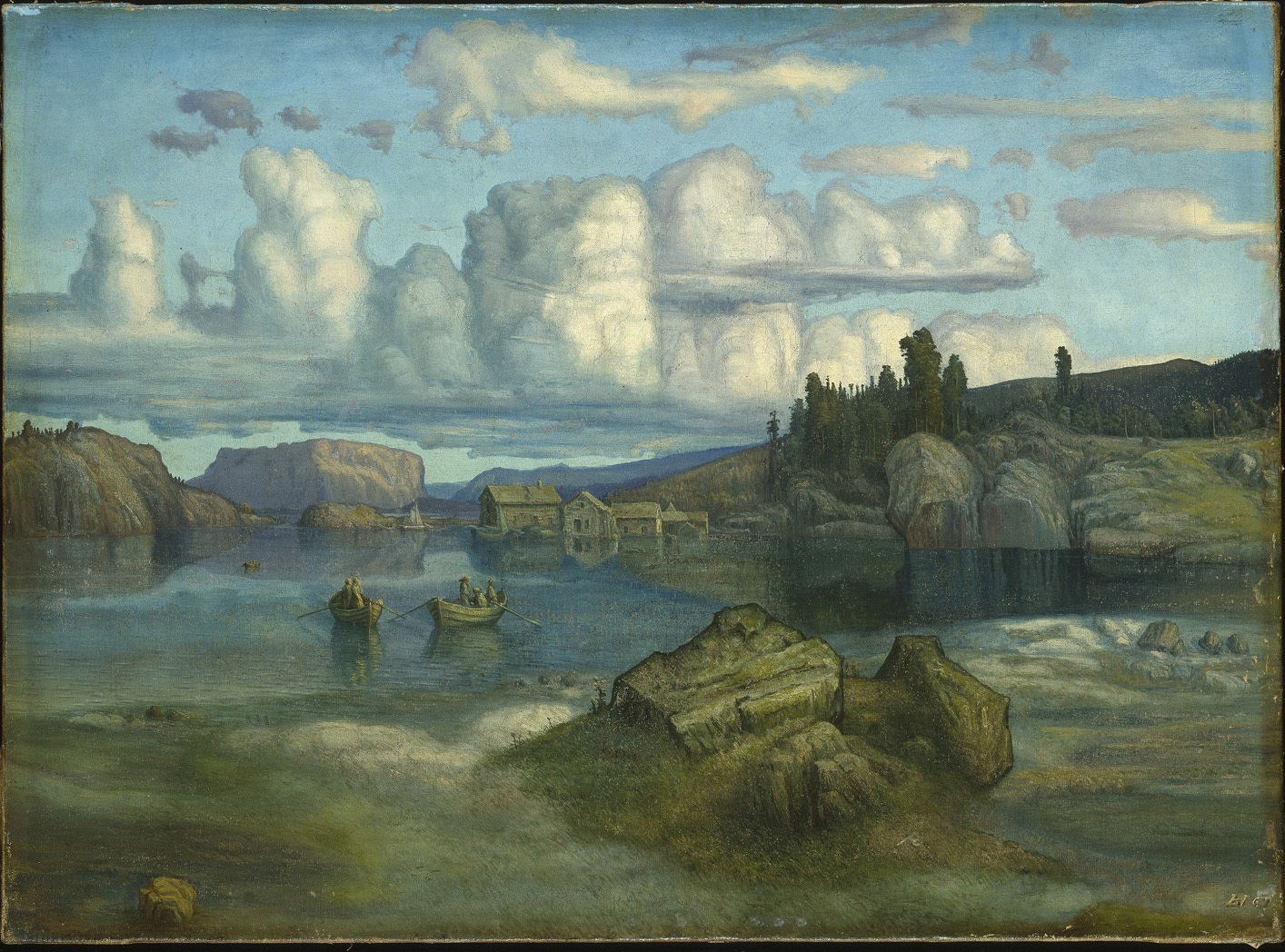
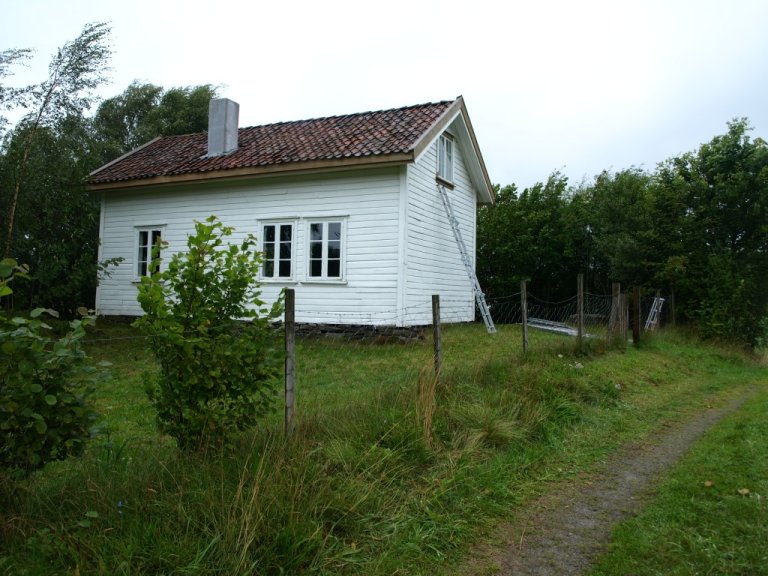
"We cannot believe that, in this enlightened age, and in a Country enjoying a constitutional Government and professing the reformed faith, these abuses (worthy of the dark ages of Romish superstition) will, when fairly brought into view, be suffered to continue.-"
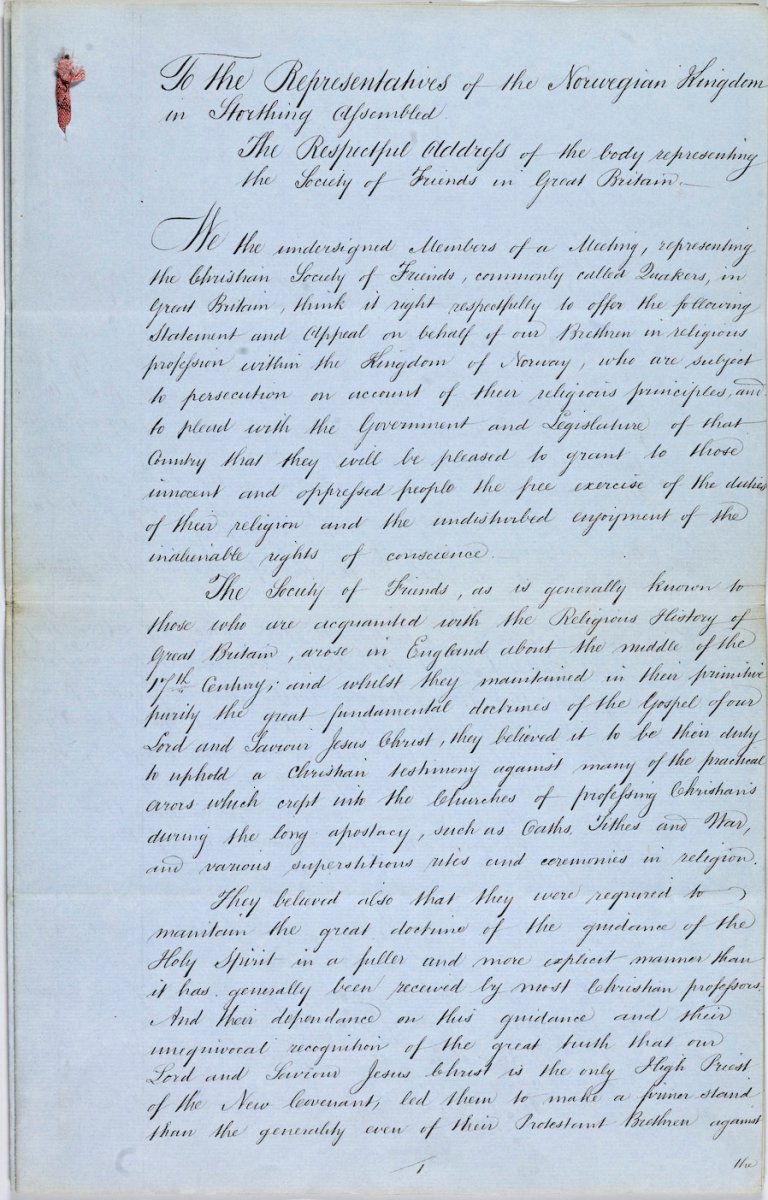
To The Representatives of the Norwegian Kingdom in Storthing assembled.
The Respectful Address of the body representing the Society of Friends in Great Britain
We the undersigned Members of a Meeting, representing the Christian Society of Friends, commonly called Quakers, in Great Britain, think it right respectfully to offer the following Statement and Appeal on behalf of our Brethren in religious profession within the Kingdom of Norway, who are subject to persecution on account of their religious principles, and to plead with the Government and Legislature of that Country that they will be pleased to grant to those innocent and oppressed people the free exercise of the duties of their religion and the undisturbed enjoyment of the inalienable rights of conscience.
The Religious Society of Friends, as is generally known to those who are acquainted with the Religious History of Great Britain, arose in England about the middle of the 17th Century; and whilst they maintained in their primitive purity the great fundamental doctrines of the Gospel of our Lord and Saviour Jesus Christ, they believed it to be their duty to uphold a Christian testimony against many of the practical errors which crept into the Churches of professing Christian’s during the long apostacy, such as Oaths, Tithes and War, and various superstitious rites and ceremonies in religion.
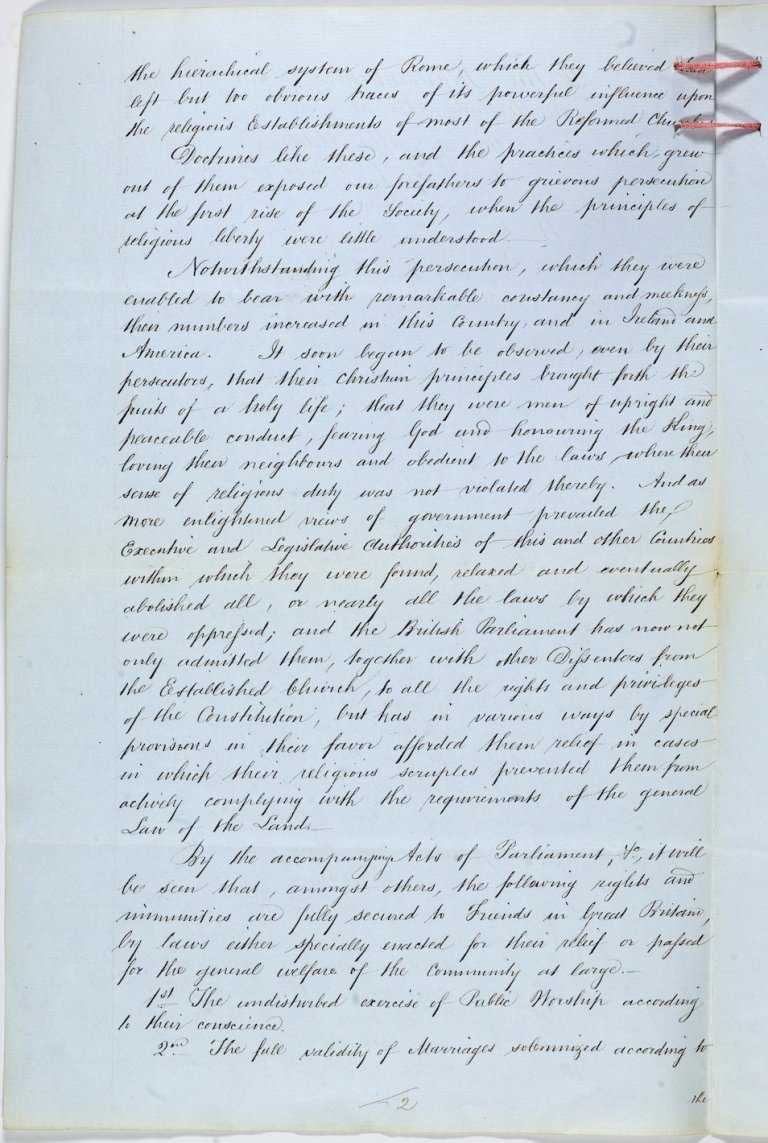
They believed also that they were required to maintain the great doctrine of the guidance of the Holy Spirit in a fuller and more explicit manner than it has generally been received by most Christian professors. And their dependance on this guidance and their unequivocal recognition of the great truth that our Lord and Saviour Jesus Christ is the only High Priest of the New Covenant, led them to make a firmer stand than the generality even of their Protestant Brethren against the hierarchical system of Rome, which they believed left the obvious traces of its powerful influence upon the religious Establishments of most Reformed Churches.
Doctrines like these, and the practices which grew out of them exposed our forefathers to grievous persecution at the first rise of the Society, when the principles of religious liberty were little understood.
Notwithstanding this persecution, which they were enabled to bear with remarkable constancy and meekness, their numbers increased in this country, and in Ireland and in America. It soon began to be observed, even by their persecutors, that their Christian principles brought forth the fruits of a holy life; that they were men of upright and peaceable conduct, fearing God and honouring the King, loving their neighbours and obedient to the laws where their sense of religious duty was not violated thereby. And as more enlightened views of government prevailed the Executive and Legislative Authorities of this and other Countries within which they were found, relaxed and eventually abolished all, or nearly all the laws by which they were oppressed; and the British Parliament has now not only admitted them, together with other Dissenters from the Established Church to all the rights and privileges of the Constitution, but has in various ways by special provisions in their favor afforded them relief in cases in which their religious scruples prevented them from actively complying with the requirements of the general Law of the Land.
By the accompanying Acts of Parliament, fc, it will be seen that, amongst others, the following rights and immunities are fully secures to Friends in Great Britain, by laws either specially enacted for their relief or passed for the general welfare of the community at large.By the accompanying Acts of Parliament, fc, it will be seen that, amongst others, the following rights and immunities are fully secures to Friends in Great Britain, by laws either specially enacted for their relief or passed for the general welfare of the community at large.
1st The undisturbed exercise of Public Worship according to their conscience.
2nd The full validity of Marriages solemnized according to the Rules of their own Religious Society.
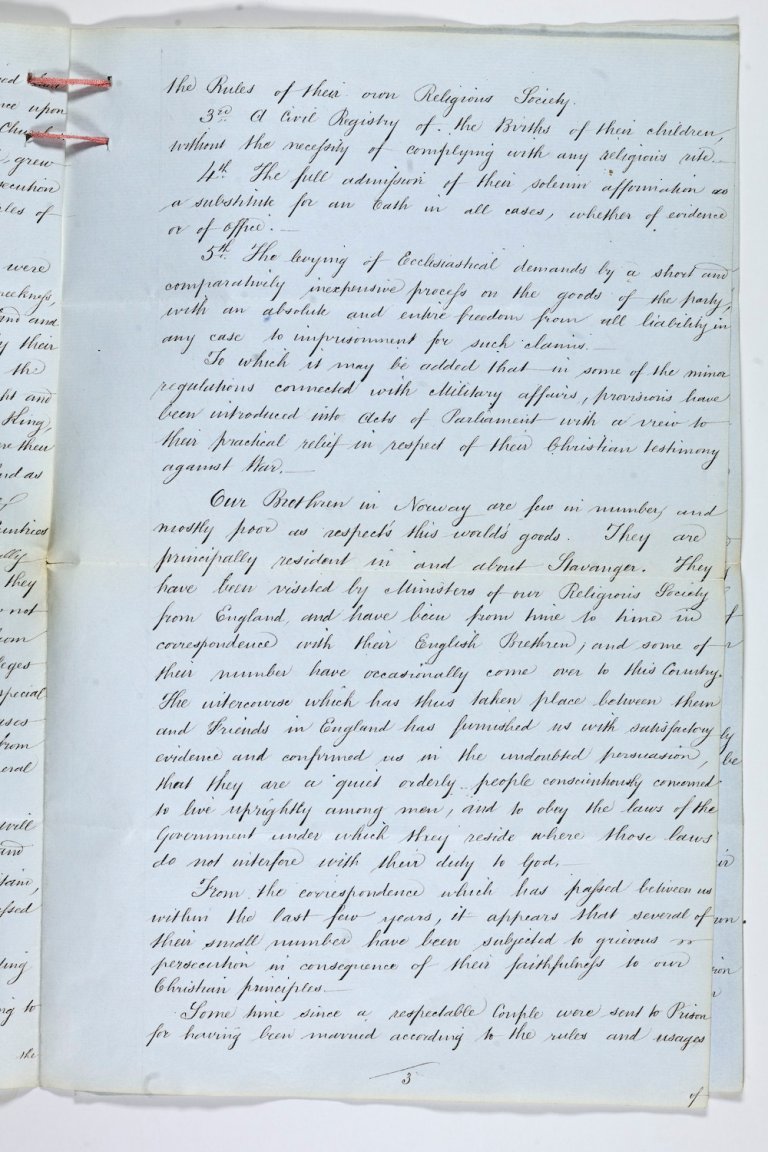
3rd A Civil Registry of the Births of their children, without the necessity of complying with any religious rite.
4th The full admission of their solemn affirmation as a substitute for an oath in all cases, whether of evidence or of office.
5th The levying of Ecclesiastical demands by a short and comparatively inexpensive process on the goods of the party, with an absolute and entire freedom from all liability in any case to imprisonment for such claims.
To which it may be added that in some of the minor regulations connected with Military affairs, provisions have been introduced into Acts of Parliament with a view to their practical relief in respect of their Christian testimony against War.
Our Brethren in Norway are few in number, and mostly poor as respect’s this world’s goods. They are principally resident in and about Stavanger. They have been visited by Ministers of our Religious Society from England, and have been from time to time in correspondence with their English Brethren; and in some of their number have occasionally come to this Country. The intercourse which has thus taken place between them and Friends in England has furnished us with satisfactory evidence and confirmed us in the undoubted persuasion, that they are a quiet orderly people conscientiously concerned to live uprightly among men, and to obey the laws of the Government under which they reside where those laws do not interfere with their duty to God.
From the correspondence which has passed between us within the last few years, it appears that several of their small number have been subjected to grievous persecution in consequence of their faithfulness to our Christian principles.
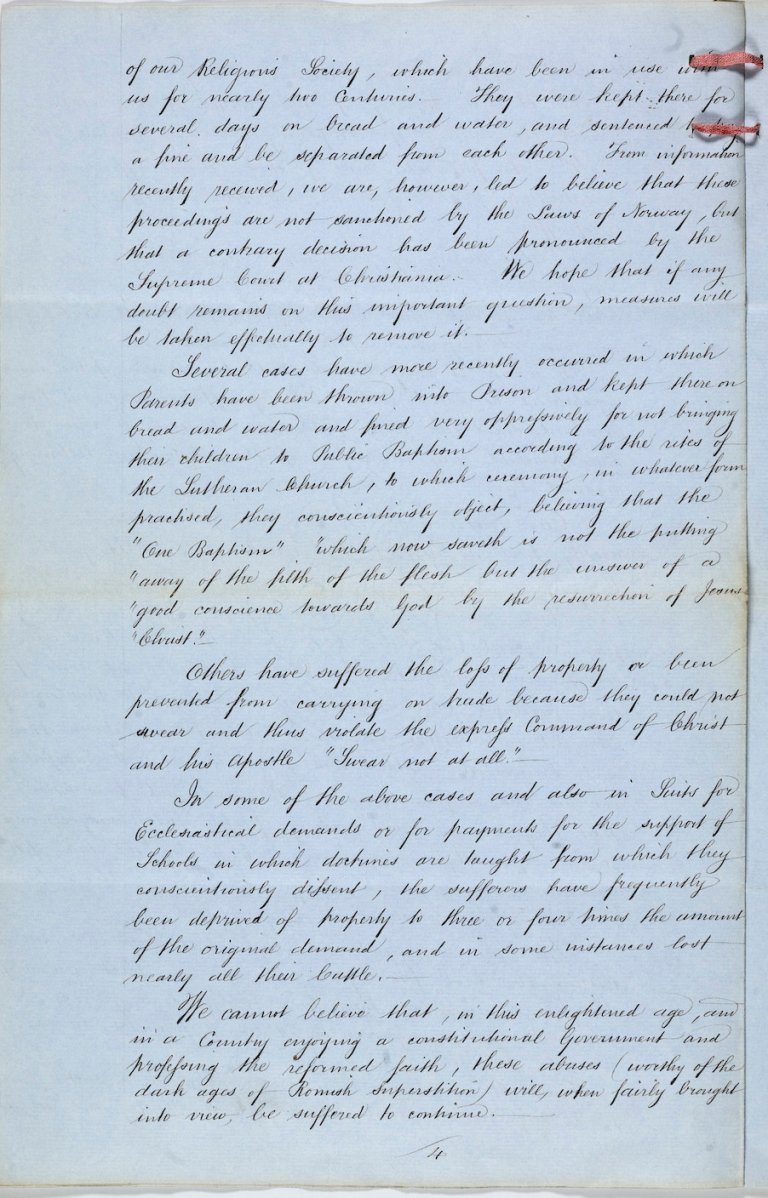
Some time since a respectable Couple were sent to Prison for having been married according to the rules and usages of our Religious Society, which have been in use with us for nearly two Centuries. They were kept there for several days on bread and water, and sentenced to pay a fine and be separated from each other. From information recently received, we are, however led to believe that these proceeding’s are not sanctioned by the Laws of Norway, but that a contrary decision has been pronounced by the Supreme Court at Christiania. We hope that if any doubt remains on this important question, measures will be taken effectually to remove it.
Several cases have more recently occurred in which Parents have been thrown into Prison and kept there on bread and water and fined very oppressively for not bringing their children to Public Baptism according to the rites of the Lutheran Church, to which ceremony, in whatever form practiced, they conscientiously object, believing that the “One Baptism” “which now saveth is not the putting away of the filth of the flesh but the answer of a good conscience towards God by resurrection of Jesus Christ.”
Others have suffered the loss of property or have been prevented from carrying on trade because they could not swear and thus violate the express Command of Christ and his apostle “Swear not at all.”
In some of the above cases and also in Suits for Ecclesiastical demands or for payments for the support of Schools in which doctrines are taught from which they conscientiously dissent, the sufferers have frequently been deprived of property to three or four times the amount of the original demand, and in some instances lost nearly all their Cattle.
We cannot believe that, in this enlightened age, and in a Country enjoying a constitutional Government and professing the reformed faith, these abuses (worthy of the dark ages of Romish superstition) will, when fairly brought into view, be suffered to continue.
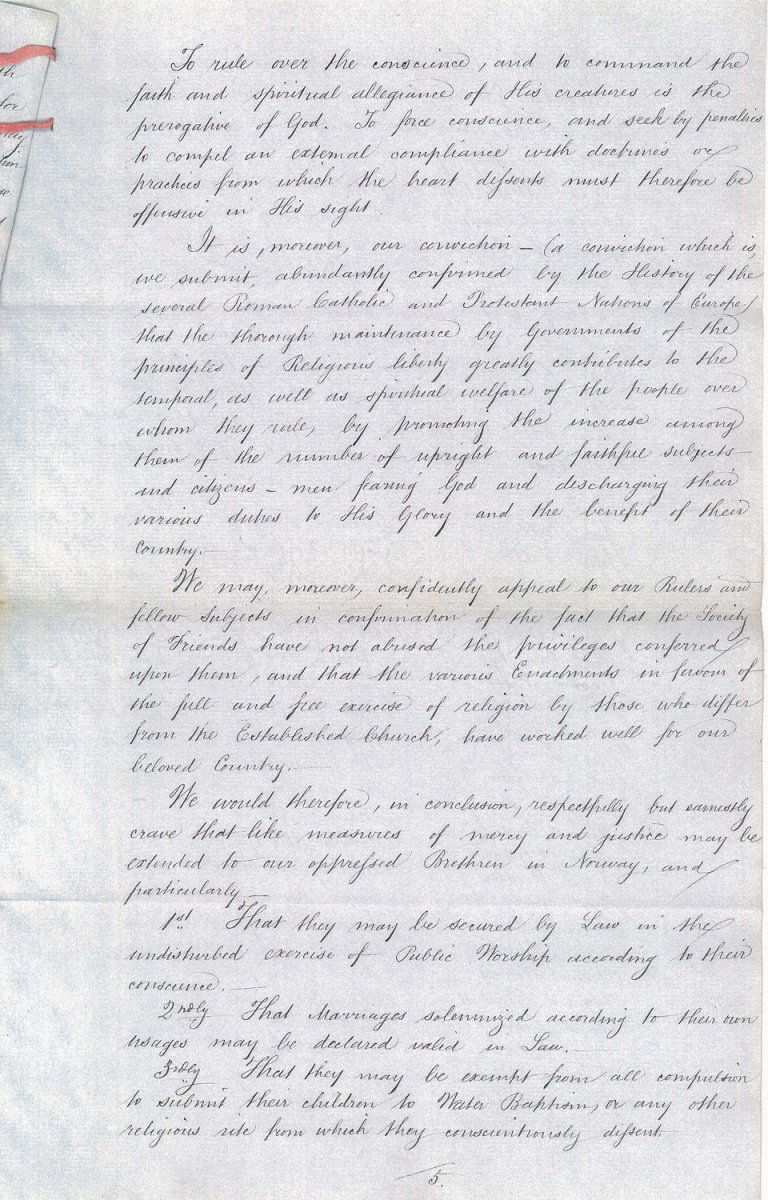
To rule over the conscience, and to command the faith and spiritual allegiance of His creatures is the prerogative of God. To force conscience, and seek by penalties to compel and external compliance with doctrines or practices from which the heart dissents must therefore be offensive in His sight.
It is, moreover, our conviction – (a conviction which is, we submit, abundantly confirmed by the History of the several Roman Catholic and Protestant Nations of Europe) that the thorough maintenance by Governments of the principles of Religious liberty greatly contributes to the temporal, as well as the spiritual welfare of the people over whom they rule, by promoting the increase among them of the number of upright and faithful subjects and citizens – men fearing God and discharging their various duties to His Glory and the benefit of their country.
We may, moreover, confidently appeal to our Rulers and fellow Subjects in confirmation of the fact that the Society of Friends have not abused the privileges conferred upon them, and that the various Enactments in favour of the full and free exercise of religion by those who differ from the Established Church, have worked well for our beloved Country.
We would therefore, in conclusion, respectfully but earnestly crave that like measures of mercy and justice may be extended to our oppressed Brethren in Norway, and particularly –
1st That they may be secured by Law in the undisturbed exercise of Public Worship according to their conscience.
2nd That Marriages solemnized according to their own usages be declared valid in Law.
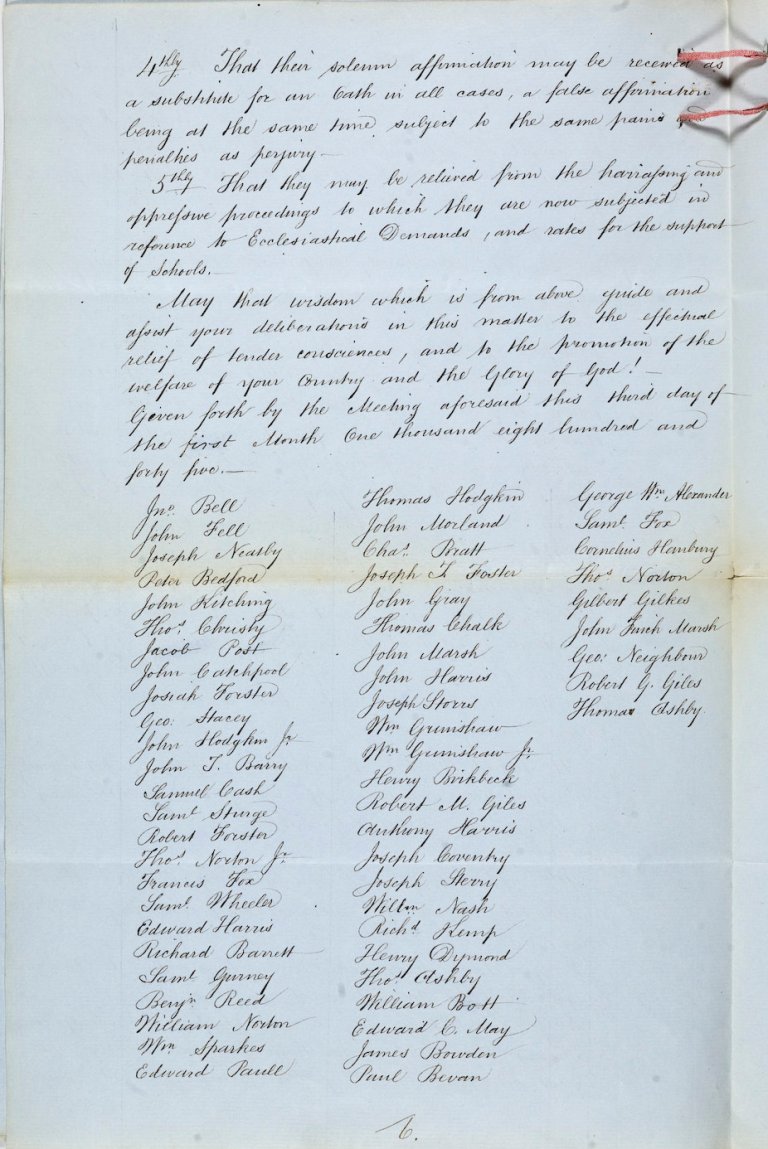
3rd That they may be exempt from all compulsion to submit their children to Water Baptism, or any other religious rite from which they conscientiously dissent.
4th That their solemn affirmation may be received as a substitute for an Oath in all cases, a false affirmation being at the same time subject to the same pains and penalties as perjury.
5th That they may be relieved from the harassing and oppressive proceedings to which they are now subjected in reference to Ecclesiastical Demands, and rates for the support of Schools.
May that wisdom which is from above guide and assist your deliberations in this matter to the effectual relief of tender consciences, and to the promotion of the welfare of your Country and the Glory of God!
Given forth by the Meeting aforesaid this third day of the first Month One thousand eight hundred and forty five. –
Jno. Bell
Thomas Hodgkin
George Wm. Alexander
John Fell
John Morland
Saml. Fox
Joseph Neatly
Chas. Bratt
Cornelius Hanbury
Peter Bedford
Joseph T. Forster
Thos. Norton
John Kitching
John Gray
Gilbert Gilkes
Thos. Christy
Thomas Chalk
John Finch Marsh
Jacob Post
John Marsh
Geo: Neighbour
John Catchpool
John Harris
Robert G. Giles
Josiah Forster
Joseph Storrs
Thomas Ashby
Geo. Stacey
Wm. Grimshaw
John Hodgkin Jr.
Wm. Grimshaw Jr.
John T. Barry
Henry Brikbeck
Samuel Cash
Robert M. Giles
Saml. Sturge
Anthony Harris
Robert Forster
Joseph Coventry
Thos. Norton Jr.
Joseph Sterry
Francis Fox
Willm. Nash
Saml. Wheeler
Richd. Kemp
Edward Harris
Henry Dymond
Richard Barrett
Tho. Ashby
Saml. Gurney
William Bott
Benjn. Reed
Edward C. May
William Norton
James Bowden
Wm. Sparkes
Paul Bevan
Edward Paull
Love, Anordninger, Kundgjørelser, Plakater m.m. 1845 – 47, Lov om dem der bekjende sig til den christelige Religion uden at være medlemmer af Statskirken, 16 juli 1845.
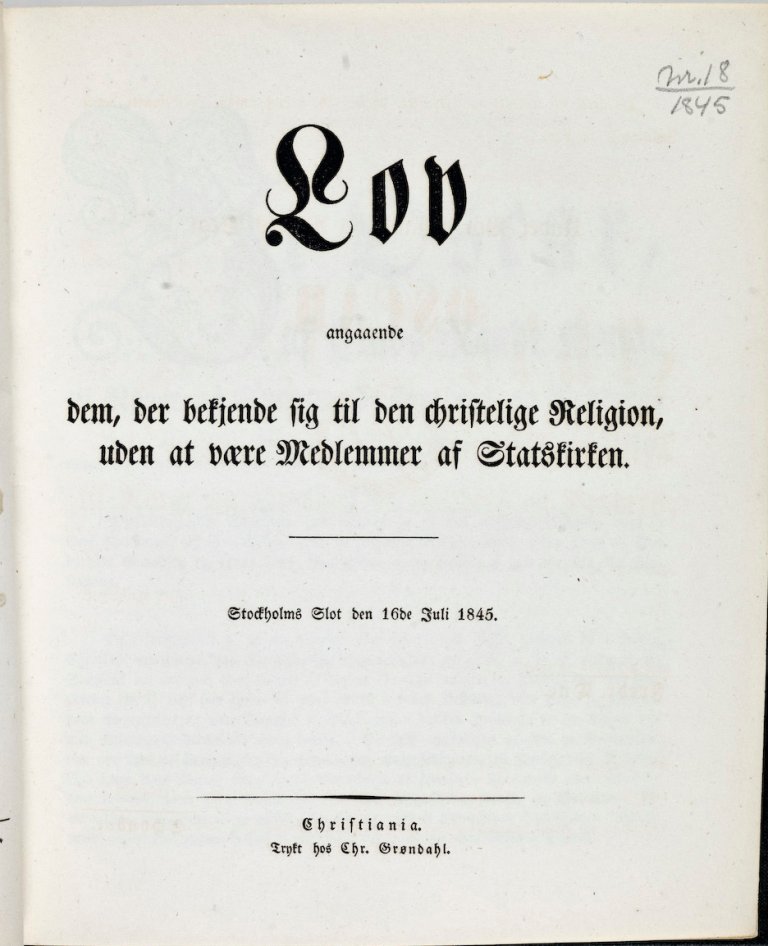
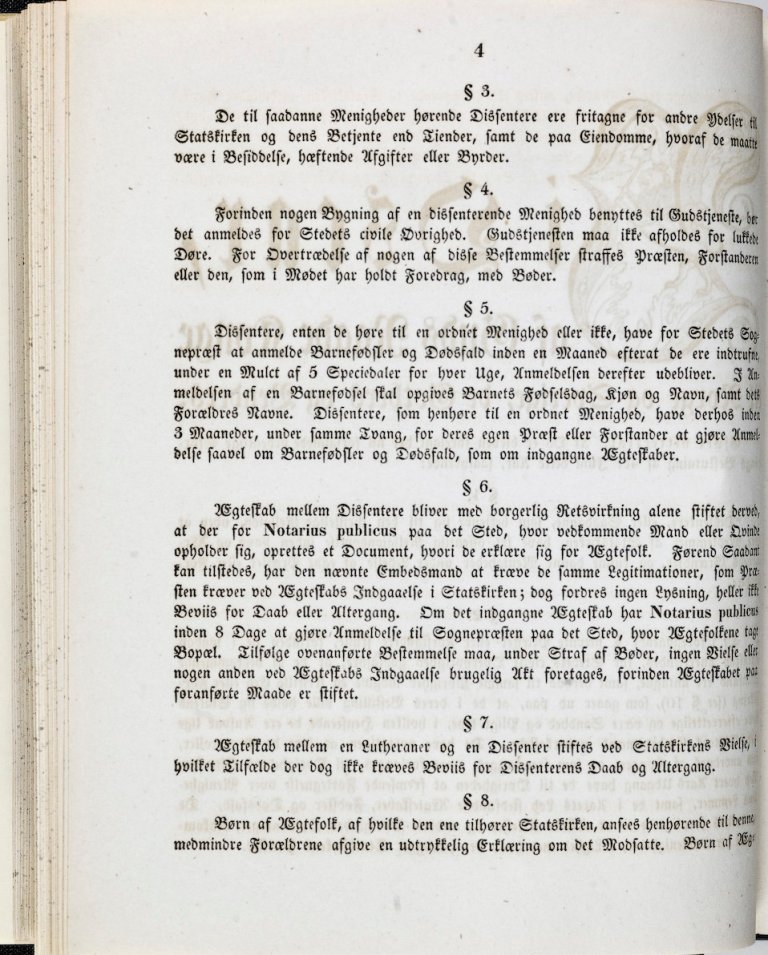
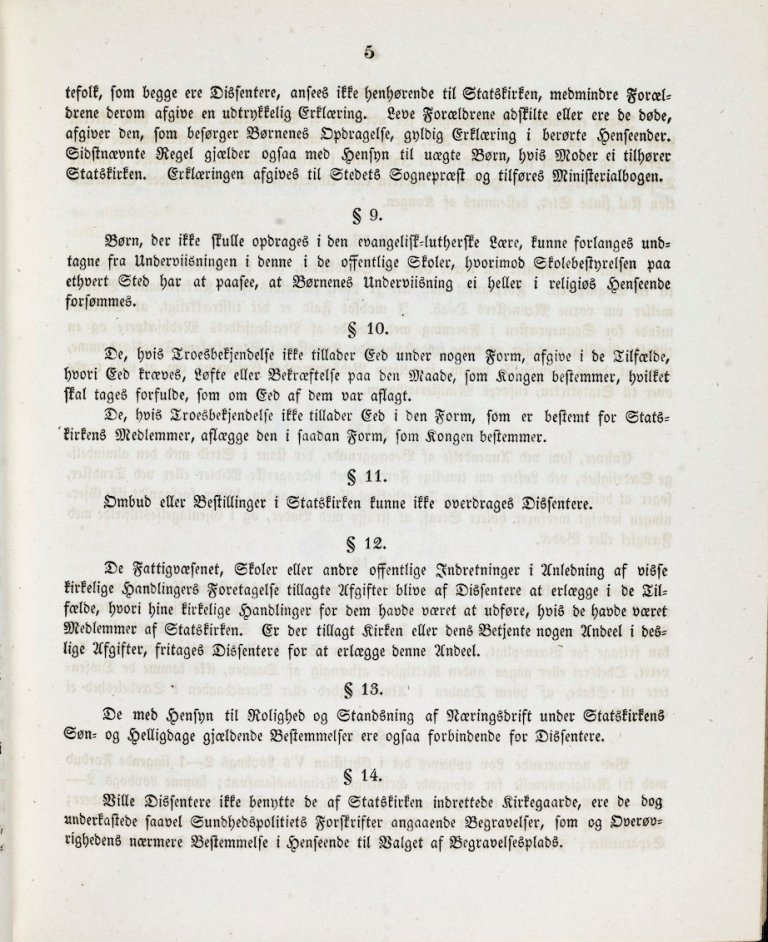
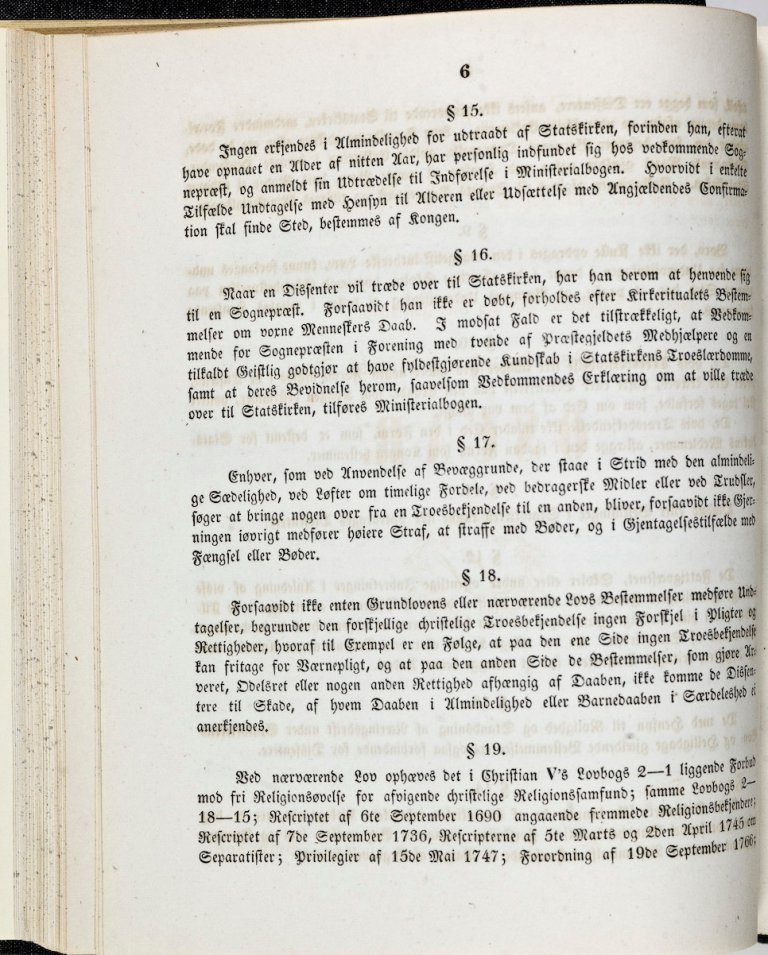
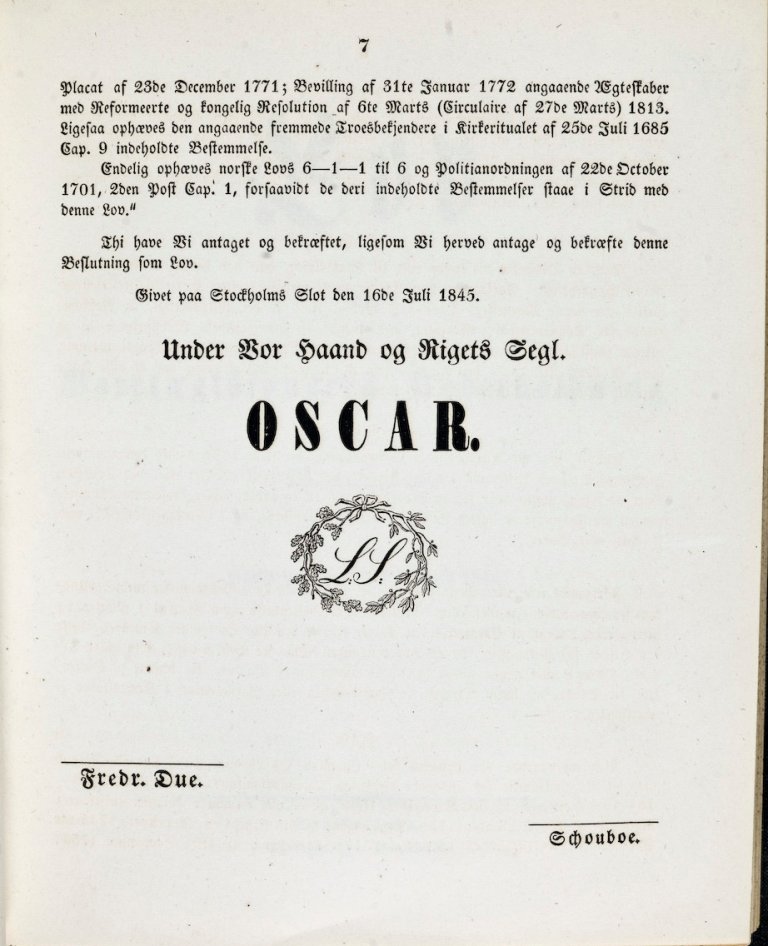
Kjelder
Furre, Berge (Grepstad, Ottar, red.). Kvar vart det av religionsfridomen i 1814? i Sant og visst. Artiklar, foredrag.
Utfyllande lesing
Seierstad, Andreas. Kyrkjelegt Reformarbeid i Norig i Nittande Hundreaaret. Kvækarane og det religiøse fridomsspursmaal, ss. 219–254, Dissentarlova kjem, ss. 316–335, Bergen 1923.
Koefoed, Holger. Lars Hertervig: Stillhet og Lys. Hertervigs kunst og kvekernes lysmystiske tradisjon. Oslo 2008.